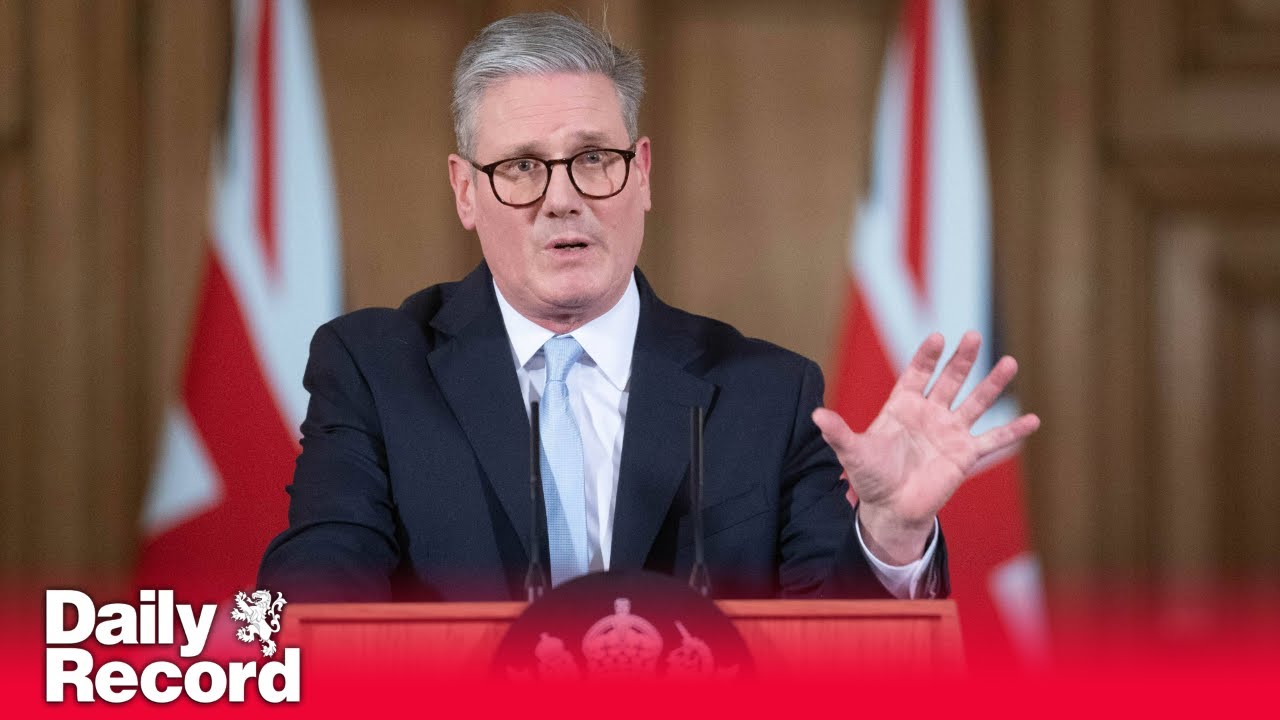UK Prime Minister Keir Starmer has laid out an ambitious plan to curb immigration levels while addressing long-standing domestic challenges such as workforce training, skills development, and unemployment.
Speaking from Downing Street on November 28, 2025, Starmer called for a recalibration of immigration policies, emphasizing the need to reduce dependency on foreign workers and strengthen local labor markets.
Starmer’s proposals come amid revelations from the Office for National Statistics (ONS) that nearly one million people migrated to the UK in the year ending June 2023—a figure four times higher than pre-2019 levels.
He attributed the sharp rise to policy failures under previous administrations, which he accused of using Brexit as a means to liberalize immigration.
“This happened by design, not by accident,” Starmer declared, describing the previous government’s approach as a “one-nation experiment in open borders.”
He argued that this policy exacerbated the country’s reliance on immigration to fill labor shortages, undermining efforts to build a self-reliant workforce.
READ ALSO: Rigging claim, letter to Britain: Obasanjo not responsible – Aide
Sectors such as engineering, he noted, have seen a decline in apprenticeship opportunities, even as work visa approvals doubled.
Starmer linked this to broader systemic failures, including a rise in long-term sickness among workers and declining youth participation in education or employment.
“You cannot separate this failure from their refusal to do the hard yards on skills,” Starmer said, highlighting the need for urgent reform.
In addition to domestic reforms, Starmer announced measures to strengthen the UK’s border security. Central to this effort is a new security pact with Iraq to combat people-smuggling networks.
Dubbed a “world-first” initiative, the agreement aims to empower Iraqi law enforcement to disrupt smuggling operations before they reach UK borders.
The Prime Minister also highlighted progress in asylum enforcement, with returns of asylum seekers up 53% compared to the previous year. “Our rules will be enforced,” he affirmed, pledging a zero-tolerance approach to lax border enforcement.
Starmer concluded his address by reaffirming his government’s commitment to a long-term strategy for immigration and workforce reform. He outlined a vision of secure borders, equitable economic opportunities, and a revitalized National Health Service (NHS).
“It won’t be quick or easy,” he acknowledged, “but we are going to turn things around… not with gimmicks, but with graft.” The Prime Minister assured the public that the government would prioritize sustainable solutions to rebuild public trust and deliver a stronger, fairer Britain.
Economists and policy analysts have weighed in on Starmer’s proposals. Dr. Emily Davies, a labor economist at the London School of Economics, praised the focus on workforce training but cautioned against over-reliance on strict immigration caps.
READ ALSO: Britain experiences hottest night ever as more heat pain looms
“Reducing immigration without robust domestic upskilling programs could risk labor shortages in critical sectors,” she warned.
Meanwhile, migration expert Professor Adam Patel highlighted the potential benefits of stronger visa enforcement and targeted skill-building initiatives but stressed the importance of balancing economic needs with public sentiment.
“The challenge will be aligning these reforms with the realities of a globalized labor market,” he noted.
Starmer’s speech signals a pivotal shift in the UK’s approach to immigration and workforce development. With the White Paper on immigration reform and new policies expected in the coming months, the government faces the task of turning its ambitious plans into actionable outcomes while navigating public and political scrutiny.

 Entertainment5 days ago
Entertainment5 days ago
 Comments and Issues1 week ago
Comments and Issues1 week ago
 Comments and Issues1 week ago
Comments and Issues1 week ago
 Health7 days ago
Health7 days ago
 Comments and Issues1 week ago
Comments and Issues1 week ago
 Health3 days ago
Health3 days ago
 Football7 days ago
Football7 days ago
 Football7 days ago
Football7 days ago

